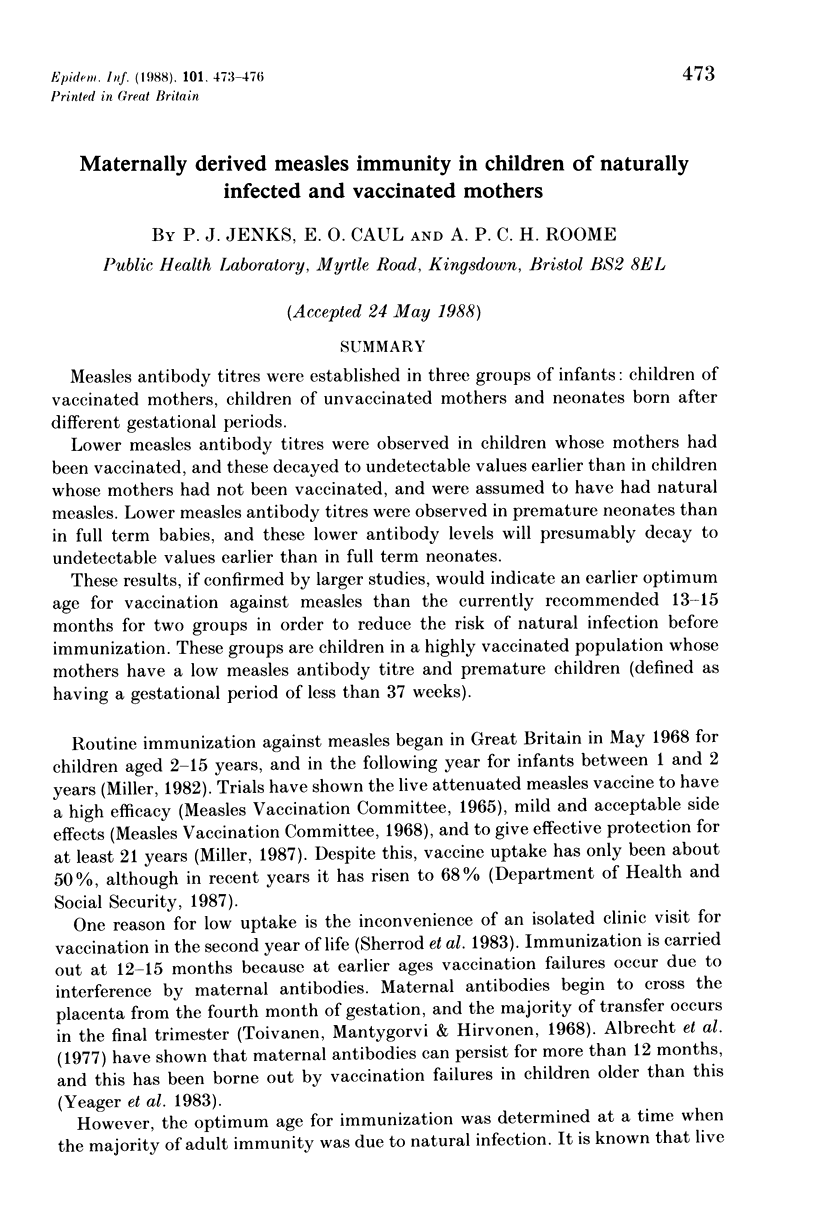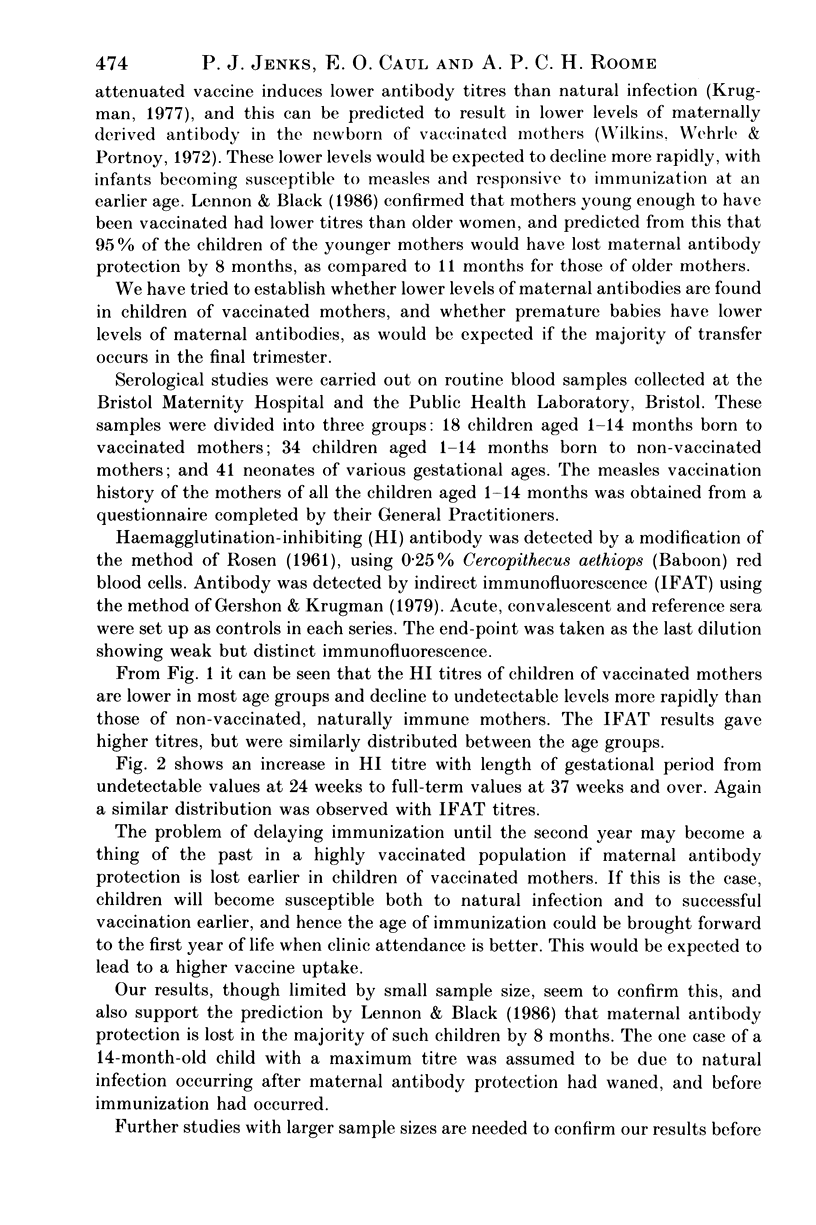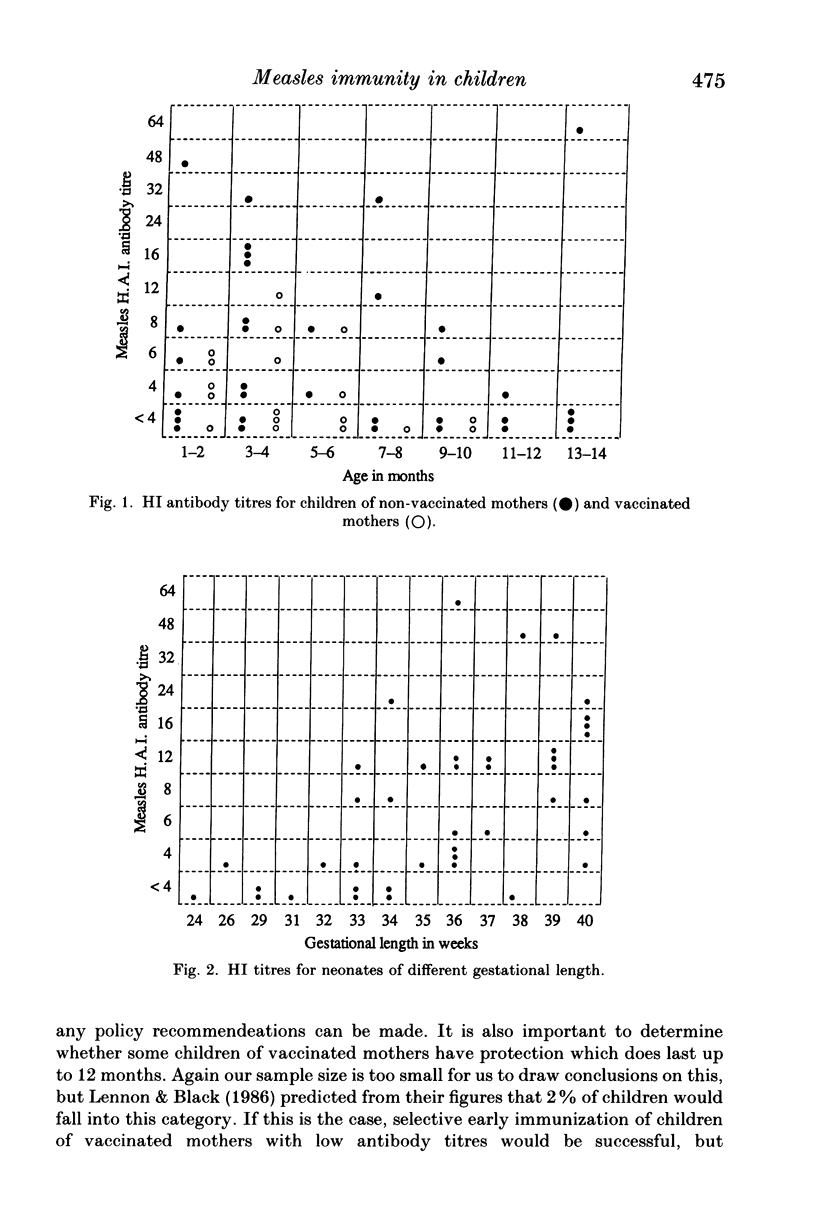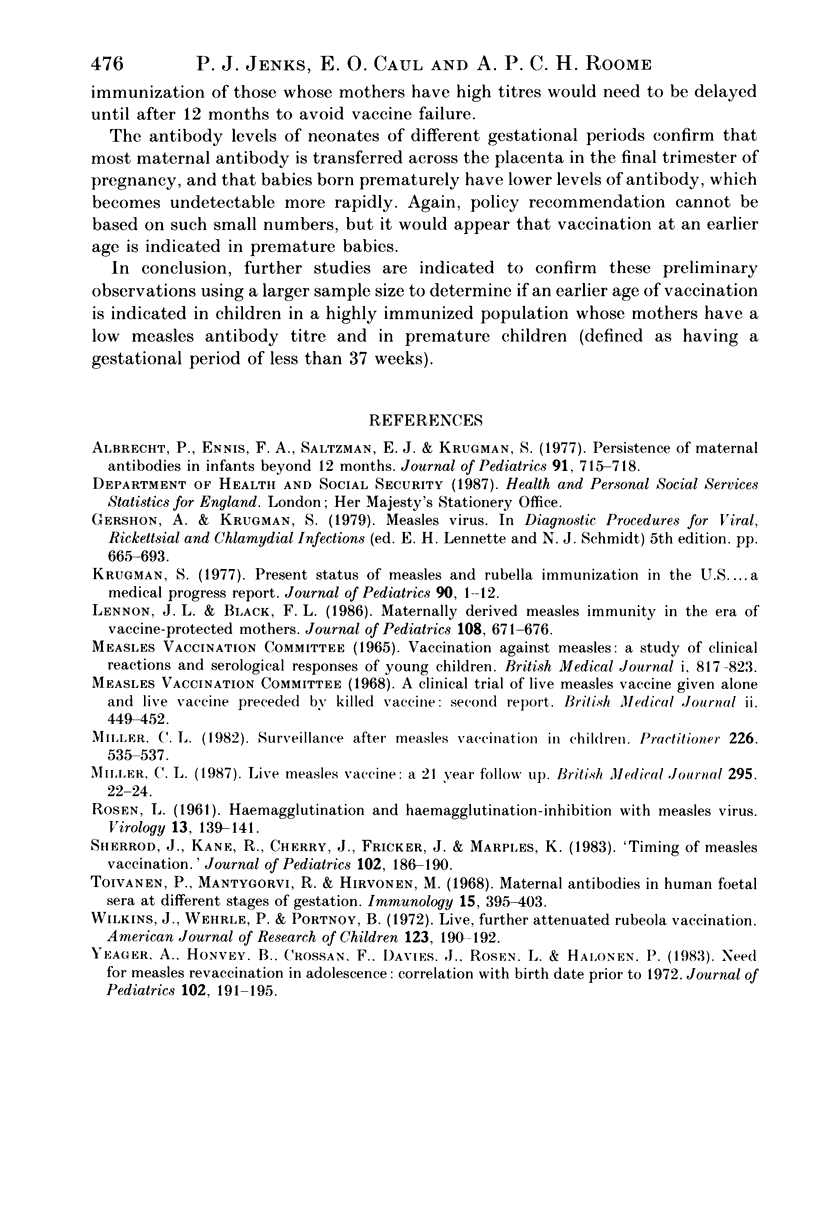Abstract
Measles antibody titres were established in three groups of infants: children of vaccinated mothers, children of unvaccinated mothers and neonates born after different gestational periods.
Lower measles antibody titres were observed in children whose mothers had been vaccinated, and these decayed to undetectable values earlier than in children whose mothers had not been vaccinated, and were assumed to have had natural measles. Lower measles antibody titres were observed in premature neonates than in full term babies, and these lower antibody levels will presumably decay to undetectable values earlier than in full term neonates.
These results, if confirmed by larger studies, would indicate an earlier optimum age for vaccination against measles than the currently recommended 13-15 months for two groups in order to reduce the risk of natural infection before immunization. These groups are children in a highly vaccinated population whose mothers have a low measles antibody titre and premature children (defined as having a gestational period of less than 37 weeks).
Full text
PDF



Selected References
These references are in PubMed. This may not be the complete list of references from this article.
- Albrecht P., Ennis F. A., Saltzman E. J., Krugman S. Persistence of maternal antibody in infants beyond 12 months: mechanism of measles vaccine failure. J Pediatr. 1977 Nov;91(5):715–718. doi: 10.1016/s0022-3476(77)81021-4. [DOI] [PubMed] [Google Scholar]
- Krugman S. Present status of measles and rubella immunization in the United States: a medical progress report. J Pediatr. 1977 Jan;90(1):1–12. doi: 10.1016/s0022-3476(77)80755-5. [DOI] [PubMed] [Google Scholar]
- Lennon J. L., Black F. L. Maternally derived measles immunity in era of vaccine-protected mothers. J Pediatr. 1986 May;108(5 Pt 1):671–676. doi: 10.1016/s0022-3476(86)81039-3. [DOI] [PubMed] [Google Scholar]
- ROSEN L. Hemagglutination and hemagglutination-inhibition with measles virus. Virology. 1961 Jan;13:139–141. doi: 10.1016/0042-6822(61)90042-3. [DOI] [PubMed] [Google Scholar]
- Sherrod J. L., Kane R., Cherry J. D., Fricker J., Maples K. Effect of timing of measles vaccination on compliance with immunizations during the second year of life. J Pediatr. 1983 Feb;102(2):186–190. doi: 10.1016/s0022-3476(83)80516-2. [DOI] [PubMed] [Google Scholar]
- Toivanen P., Mäntyjärvi R., Hirvonen T. Maternal antibodies in human foetal sera at different stages of gestation. Immunology. 1968 Sep;15(3):395–403. [PMC free article] [PubMed] [Google Scholar]
- Wilkins J., Wehrle P. F., Portnoy B. Live, further attenuated rubella vaccine. Serologic responses among term and low birth weight infants. Am J Dis Child. 1972 Mar;123(3):190–192. doi: 10.1001/archpedi.1972.02110090060002. [DOI] [PubMed] [Google Scholar]
- Yeager A. S., Harvey B., Crosson F. J., Jr, Davis J. H., Ross L. A., Halonen P. E. Need for measles revaccination in adolescents: correlation with birth date prior to 1972. J Pediatr. 1983 Feb;102(2):191–195. doi: 10.1016/s0022-3476(83)80517-4. [DOI] [PubMed] [Google Scholar]


